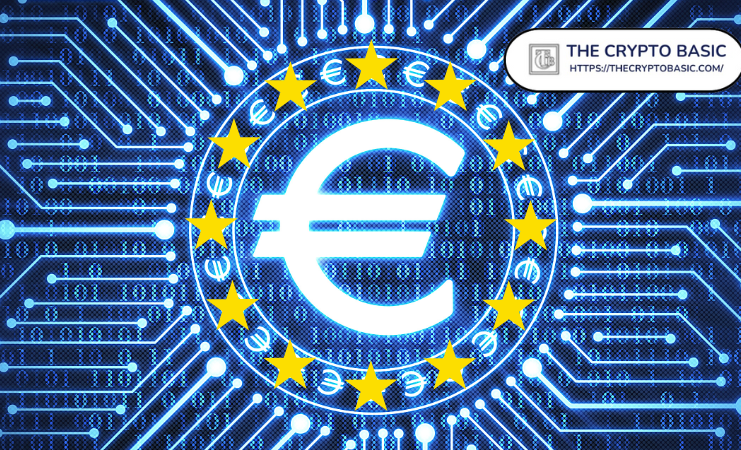The European Union has taken another step toward introducing a digital euro, as finance ministers agreed on a roadmap to guide its potential launch.
The initiative, led by the European Central Bank (ECB), aims to strengthen Europe’s financial independence and reduce its reliance on American payment giants, Visa and Mastercard.
Why Europe Wants a Digital Euro
For years, EU leaders have debated how to reduce the continent’s dependence on external players in critical areas such as energy, defense, and finance.
Payments have emerged as a central concern. Today, Europe’s cross-border transactions are largely dominated by US-based systems, a reality that many policymakers view as a strategic vulnerability.
The digital euro is being developed as an electronic wallet backed by the European Central Bank. It aims to complement cash and work seamlessly alongside it, offering citizens and businesses a payment method built entirely on European infrastructure.
ECB officials argue that such a system is crucial not only for economic efficiency. It also plays a key role in safeguarding political and financial sovereignty.
Concerns from Lawmakers and Banks
Despite its promise, the project has not been universally welcomed. Lawmakers and commercial banks have raised alarms about the risks it could pose. One major fear is that citizens may transfer large sums from their bank accounts into digital euros. Such transfers could trigger a destabilizing outflow of deposits.
Others point to the potential cost of implementation and warn that the system could give authorities new tools that might erode personal privacy. These concerns have slowed progress and forced the ECB to seek compromises with member states.
Compromise at the Copenhagen Meeting
According to a recent Reuters report, EU finance ministers met in Copenhagen on Friday with ECB President Christine Lagarde and European Commissioner Valdis Dombrovskis. After extensive discussions, the group reached a compromise on two contentious issues: the decision-making process and the holding limits.
Under the new understanding, finance ministers will have a formal say before the ECB decides whether to issue the currency. This ensures governments retain influence over the final step.
In addition, ministers agreed on a framework for setting limits on the amount of digital euro each resident can hold, a safeguard intended to prevent bank runs.
Although details of these holding limits have not been disclosed, the agreement marks a significant step forward. A participant told Reuters that the ECB will submit its proposals on limits for approval by the European Council of Finance Ministers.
Legislative Hurdles Still Ahead
Meanwhile, the project’s political and legal journey is far from complete. In June 2023, the European Commission proposed legislation to establish the digital euro. However, approval is still required from both the European Parliament and the European Council.
The Council has committed to finalizing its review by the end of this year, but the timeline remains tight. The ECB hopes legislation will be in place by June 2026.
Even then, officials estimate it will take between two and a half to three years to design, test, and roll out the system. This means the digital euro is unlikely to become a reality before 2029.
Filling Gaps in Europe’s Payment Landscape
Some EU countries already run national digital payment systems, but none of these operate seamlessly across the 27-member bloc. As a result, European consumers and businesses often depend on American companies for cross-border payments.
A unified digital euro would resolve this issue by providing a single, continent-wide payment solution.
“Symbol of Sovereignty”
Beyond the technical and financial aspects, ECB President Christine Lagarde stressed that the initiative is not just about payments.
“The digital euro is a symbol of Europe’s sovereignty,” she said at the press conference. “It shows our capacity to control cross-border payments through European infrastructure and solutions.”
DisClamier: This content is informational and should not be considered financial advice. The views expressed in this article may include the author's personal opinions and do not reflect The Crypto Basic opinion. Readers are encouraged to do thorough research before making any investment decisions. The Crypto Basic is not responsible for any financial losses.



